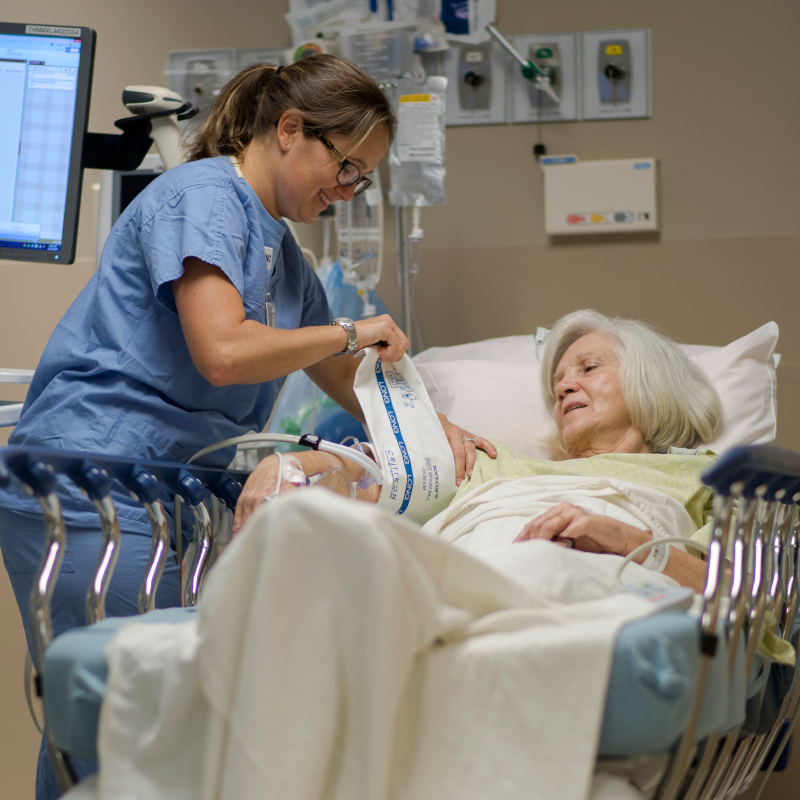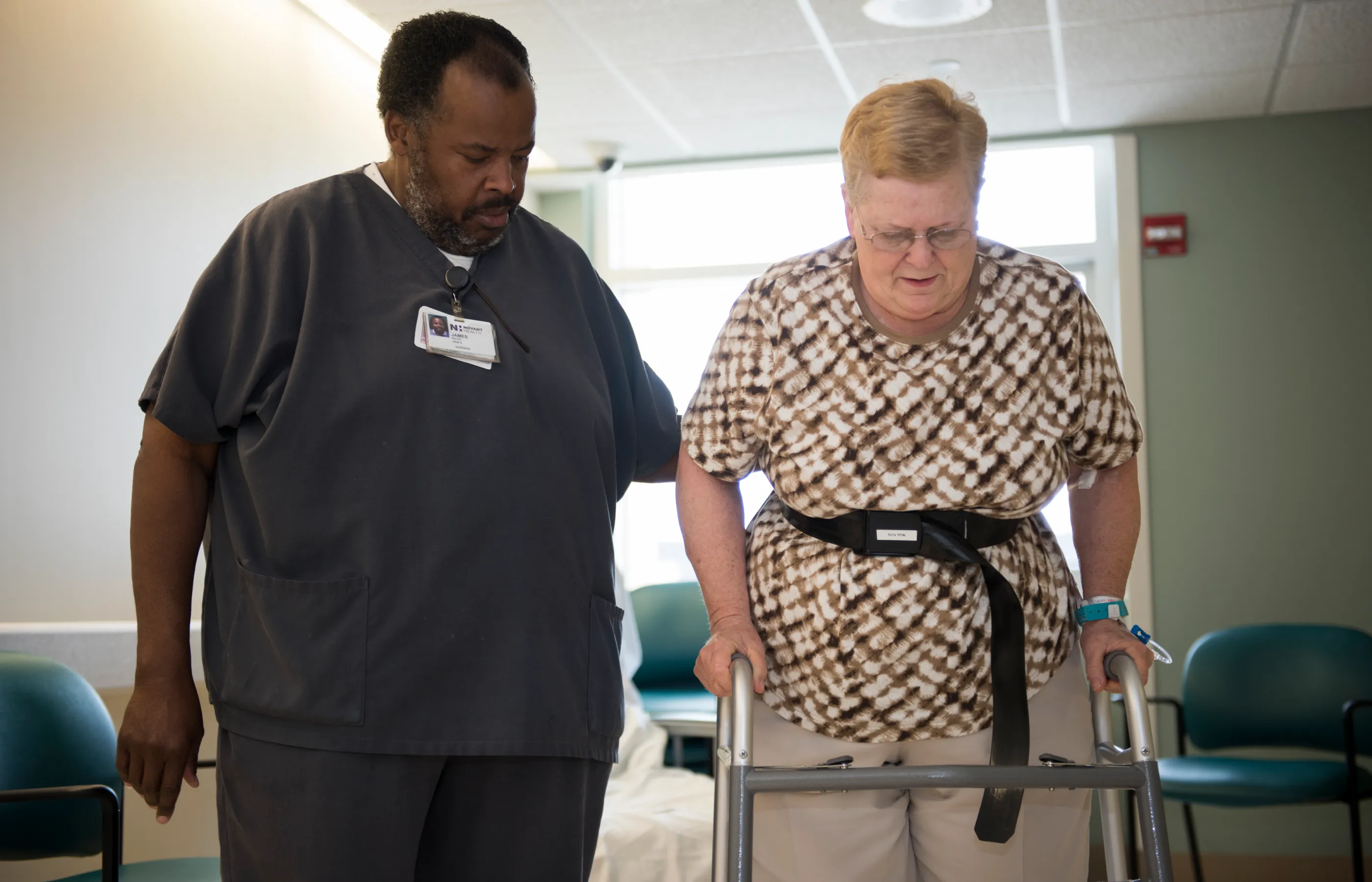Stroke Treatments
Advanced Diagnosis, Care and Rehabilitation
Immediate treatment can dramatically lower your risk of disability and shorten your recovery after a stroke, especially when paired with comprehensive follow-up care. That’s why we not only provide 24/7 care for acute stroke at so many of our emergency rooms, but nurse navigators who will help you and your loved ones get the care and guidance you need after leaving the hospital.
Fast, accurate treatment when you need it most.
You can lose 2 million brain cells every minute a stroke goes untreated. That's why reacting fast to stroke signs is critical to improving your chances of recovery. Novant Health operates eight nationally recognized stroke centers, where our expert team uses the latest tests, medications, and procedures to treat your stroke quickly as we work to give you the best possible outcomes.
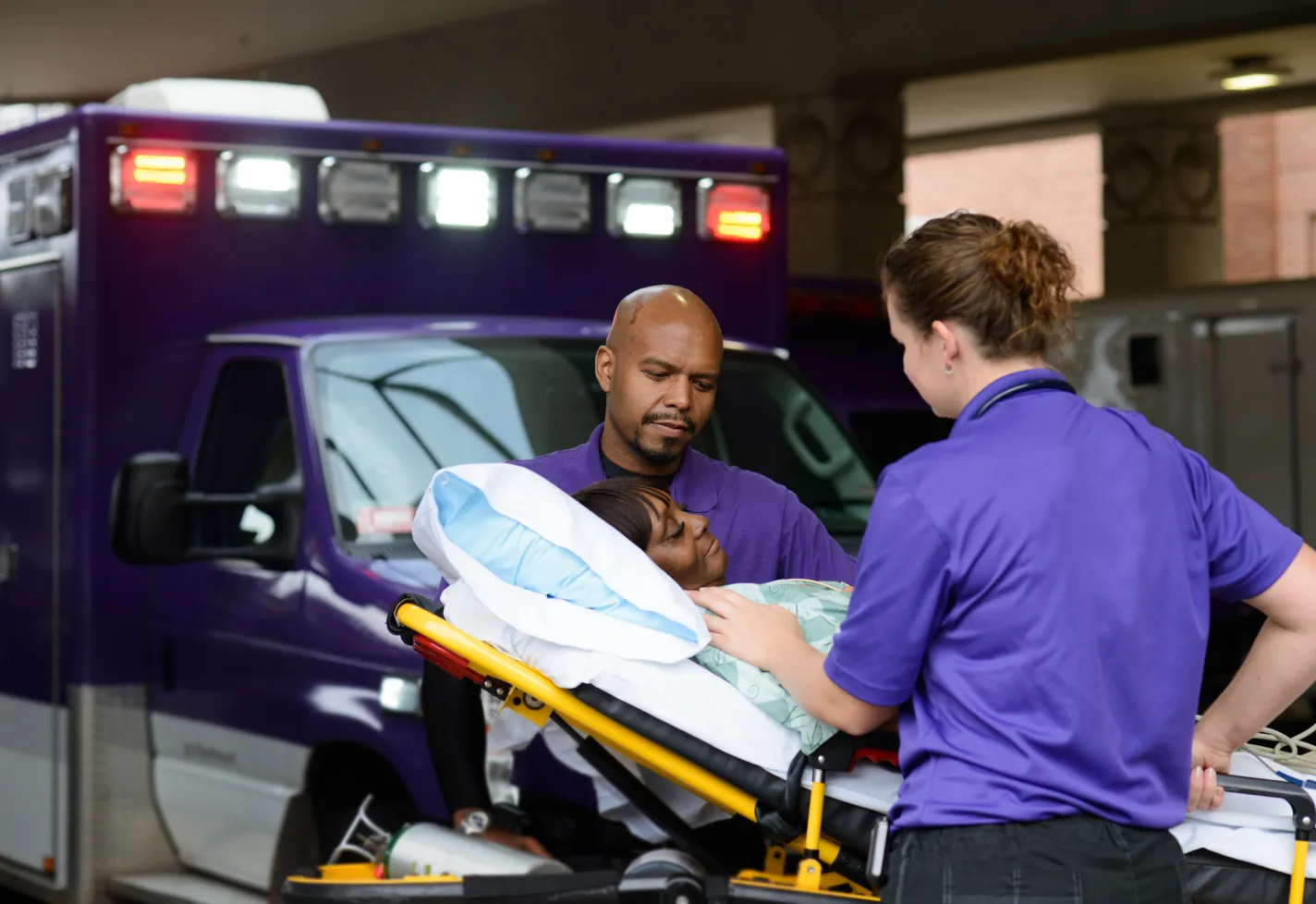
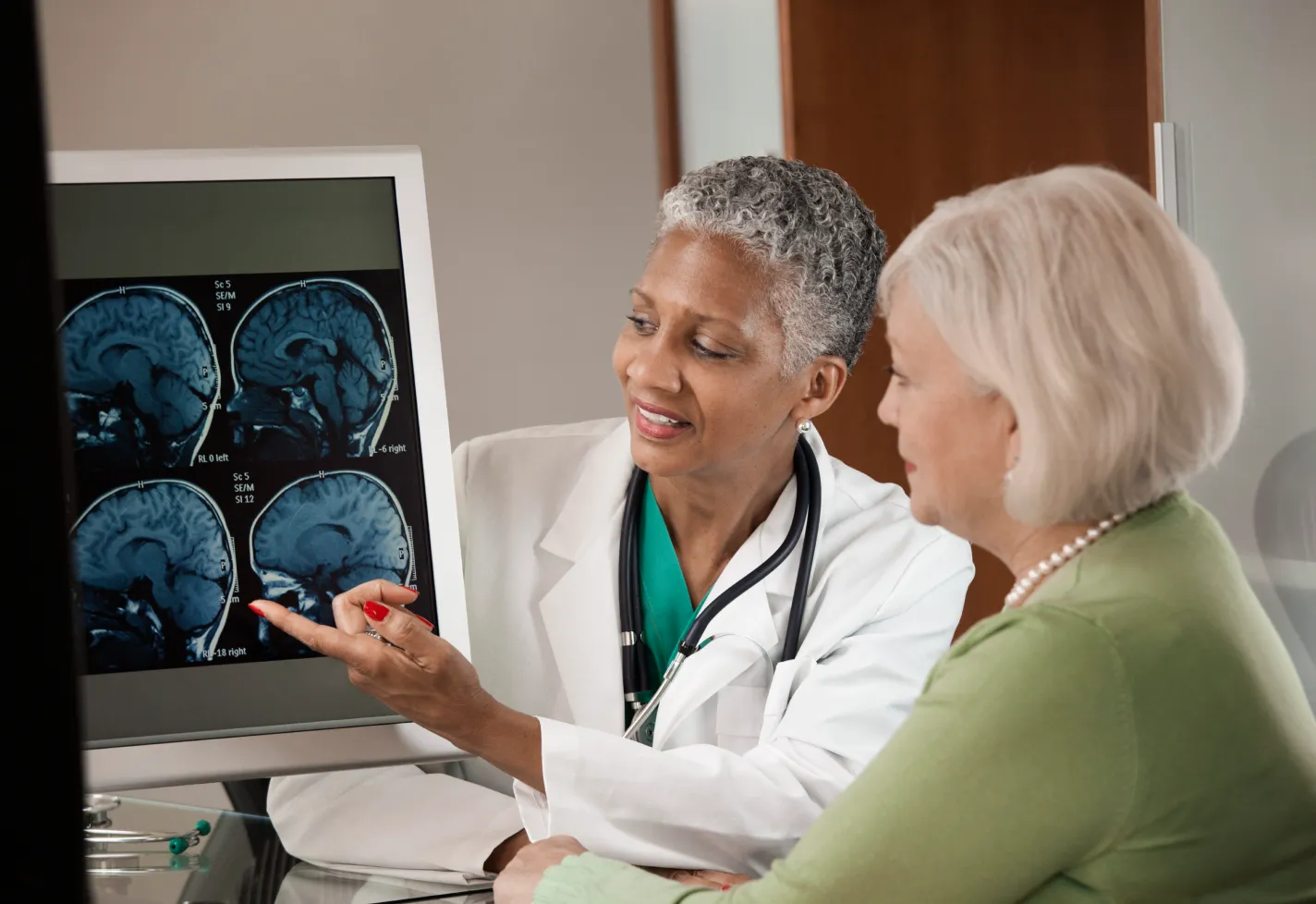
Understanding Strokes
The two most common types of strokes are:
Ischemic strokes: Nearly nine out of every ten strokes is the result of an arterial blockage that restricts blood flow to your brain.
Hemorrhagic strokes: This type of stroke happens when a blood vessel in your brain (intracerebral hemorrhage) or one that is around the brain (subarachnoid hemorrhage) ruptures and bleeds.
Emergency Stroke Treatments
Rapid Response Stroke Care
Watch a stroke team in action.
You've just had a stroke. Here's what happens next.
The Support You Need After a Stroke
Nurse navigators
Recovering from a stroke can be challenging. There are many things to consider, from understanding your diagnosis and treatment options to accessing outpatient rehabilitation services and community support resources when you are ready to go home. That's where our stroke navigators come in. These specially trained registered nurses will provide support throughout your hospital stay and after you've been discharged at no extra charge. They can help:
- Explain your diagnosis and treatment options
- Answer any questions you or your family may have
- Help you connect with rehabilitation services and other specialists to ensure you receive the follow-up care you need promptly
- Connect you with community-based resources, such as patient support groups
Nurse navigators are available at all three of our comprehensive stroke centers.
Medications
If you have experienced ischemic stroke, your provider may prescribe medications to lower your risk of future strokes, including:
- Clopidogrel (Plavix), an antiplatelet medication
- Warfarin (Coumadin), a blood thinner
- Atorvastatin (Lipitor®), a statin
- Simvastatin (Zocor®), a statin
Stroke rehabilitation and recovery
If you have a stroke or another neurological injury or disease of the brain or spinal cord, the road to recovery can be overwhelming. Our stroke rehabilitation specialists will begin working with you bedside at the hospital through all stages of your recovery.
Our comprehensive stroke centers provide effective therapy options geared to your individual needs, including:
- Medical management: We may administer drugs such as blood pressure medication, ACE inhibitors and antidepressants.
- Physical therapy: We'll help you strengthen your muscles and improve coordination and range of motion.
- Occupational therapy: You'll relearn how to do daily tasks such as cooking, dressing, bathing and exercising.
- Speech therapy: Our speech therapists will help you regain the ability to swallow, speak and process language.
- Functional restoration: We use advanced technology to improve arm and hand movement, walking and foot drop symptoms.
- Cognitive and communication exercises: Our specialists will work with you to improve memory, attention and concentration skills.
- Botox® injections: These muscle-relaxing drugs can reduce spasticity in your arms and legs.
- Individual and family psychological services: Our support services can address post-stroke symptoms such as depression, anxiety and social isolation.
- Educational training for coping and adjustment: We'll teach you coping mechanisms to help you overcome challenges associated with stroke recovery.
Why Novant Health
Novant Health or its medical centers have received the following awards for the high level of stroke care we provide.
- Million Hearts Health System Award
- Get With the Guidelines- Stroke: Gold Plus
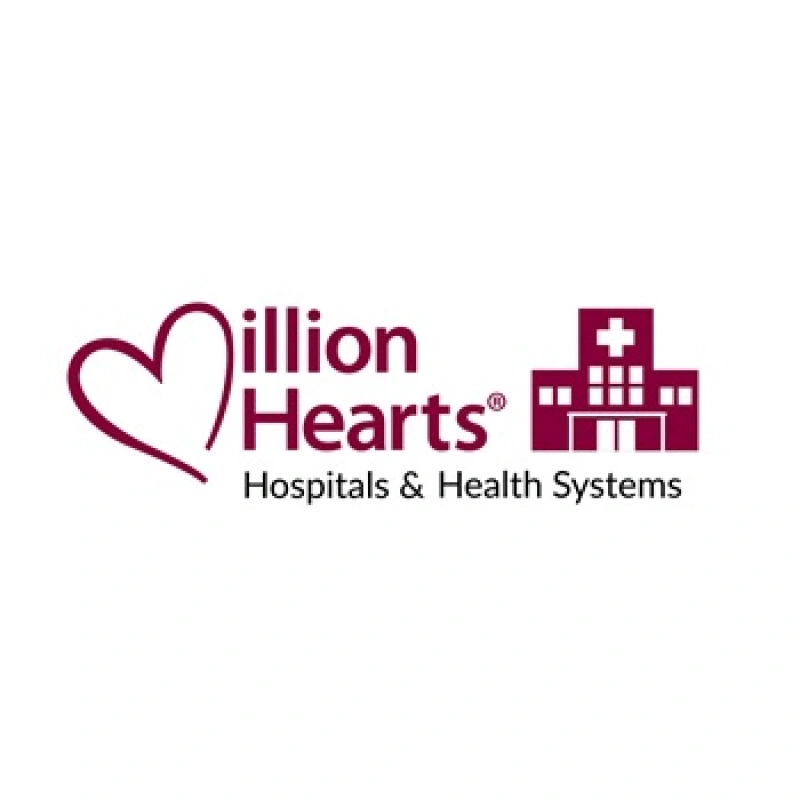
The national standard for stroke diagnosis and treatment is 60 minutes. On average, Novant Health does it in 38 minutes, with artificial intelligence (AI) powered imaging tools, we start treatment in 28 minutes.
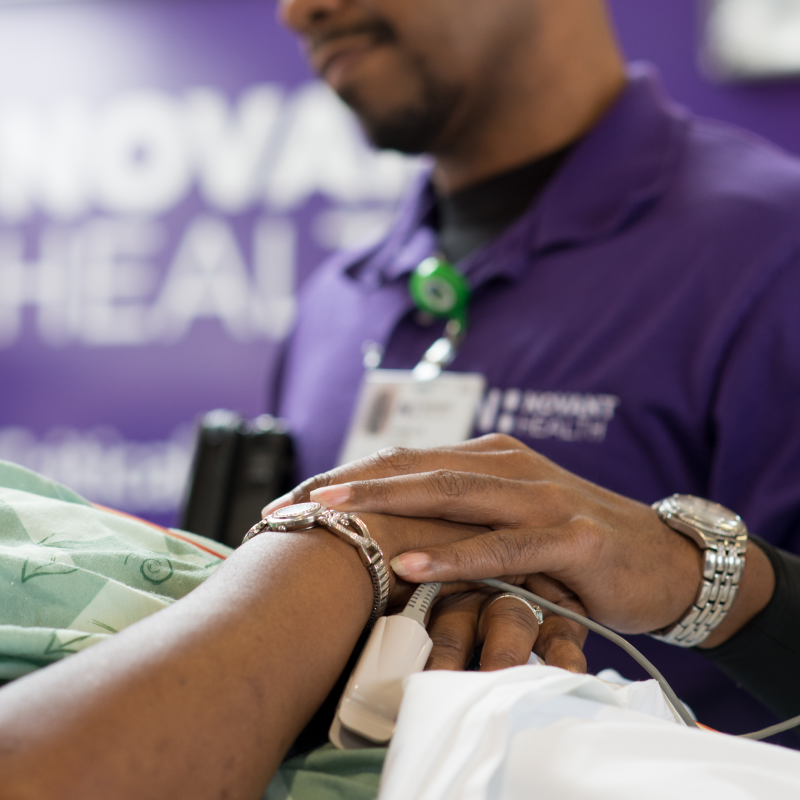
Novant Health is proud to offer three comprehensive stroke centers certified for having an elite medical staff and superior stroke units qualified to care for patients with complex stroke issues.

At every Novant Health stroke center, we a neurointensivist, neuroradiologist, neurologist, and neurosurgeon available 24 hours a day, seven days a week. This ensures you get the remarkable you need whenever you need it.
